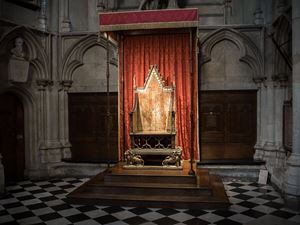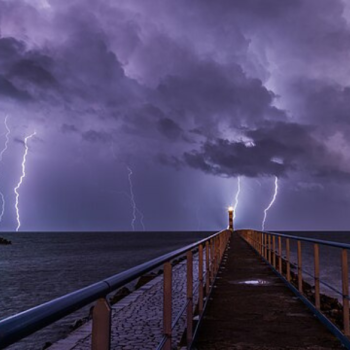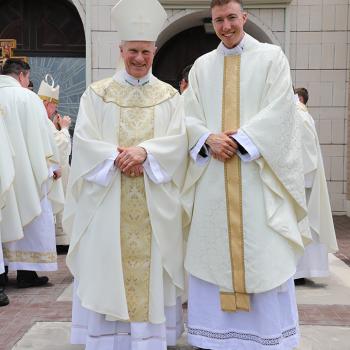
With Covid-19’s reign of terror as a global emergency finally concluding on 5 May, the distinctly more benevolent rule of King Charles III was on the cusp of a new phase. To the fanfare of trumpets, the King would arrive, in less than 24 hours, at Westminster Abbey to receive the St. Edward’s crown. It was to be the first coronation of a British monarch in seven decades.
There was much attention, before and after, on the ceremony’s religious pluralism. Take just one publication, The Spectator, which ran the following pieces: “God save our Islamophilic King”; “How the coronation will celebrate multifaith Britain”; “The religious roots of the coronation”; “Why Christianity is at the heart of the King’s coronation”; and similar articles.
In Whitehall, the London precinct where the political class rub shoulders, interfaith matters were flavour of the month – along with coronation chicken, obviously! – before the big day. His Majesty’s Government had, on 26 April, published its Faith Engagement Review – known as the Bloom Review for its author, Colin Bloom. (For a TL; DR, you can read either the report’s executive summary section or Bloom’s piece for Premier Christianity, where he summarises his key findings.)
The major theme of Bloom’s work is the UK Government’s duty to make sure adherents of minority faiths feel they belong in Britain, wherever they may live and work in this Kingdom. The man is a bit of a wordsmith, often turning to poetic language. ‘The beauty of belonging is most evident in the creative co-operation between individuals and communities from different cultural and faith backgrounds,’ Bloom argues in his review (p. 105), ‘towards the mutually beneficial goals of society.’
Those watching the coronation witnessed eminences drawn from the nation’s many faiths exemplify this ethic of co-operation. Justin Welby, Anglican Archbishop of Canterbury, presided. Representatives of other Christian denominations – including Scottish Presbyterian Moderator, Iain Greenshields, and Roman Catholic Archbishop of Westminster, Cardinal Vincent Nichols – read sections of liturgy. Lord Kamall, Baroness Merron, Lord Singh and Lord Patel – representing the Muslim, Jewish, Sikh and Hindu communities, respectively – presented King Charles with royal regalia.
Boy, was there a lengthy list of regalia to check off. Everything imaginable, from the royal sceptre to the jewelled sword of state, was lavished on Westminster Abbey’s High Altar. The Coronation Theatre glittered with so much bling that it resembled the Tower of London’s Jewel House for the day.
Rishi Sunak’s contribution to the proceedings was another nice interfaith touch. Mr Sunak, the first Hindu to lead the British Government, delivered the New Testament reading, Colossians 1.9-20. It was a reminder of how eventful Charles’s reign has been so far that eight months prior, Sunak’s predecessor Liz Truss had read for Queen Elizabeth’s funeral in the very same pulpit…
Yes, a British coronation is a fundamentally Christian ceremony, but such is our tradition. To crown a monarch anywhere other than Westminster Abbey, London’s thousand-year-old bastion of Anglicanism, would’ve been as unthinkable as a cattle auction in the King’s boudoir. Given how Charles is the fortieth monarch to have been anointed at Westminster Abbey, wouldn’t it have been far too violent a break with established practice to go for a non-Christian venue?
Charles is a king well-suited for modern Britain. His devotion to religious tolerance is longstanding and well-known. ‘Almost 30 years ago,’ recalls Harriet Sherwood, a Guardian commentator, ‘Charles triggered a furore when he suggested he would be defender of faith in general, rather than defender of the [Anglican] faith, stemming from a desire to reflect Britain’s religious diversity.'
Three decades on, the once controversial notion of a monarch who serves members of all faiths equally – not just Anglicans, or Christians in general – is now mainstream. In addition to the religious leaders who took part in the presentation of regalia, Charles greeted a further contingent in the nave on the way to door. I’d imagine that when people of all faiths look back on this coronation, all except followers of the most obscure creeds will feel they were included.
When everyday life resumed after a joyous weekend, all that royal spectacle evaporated so quickly. The melodies of Elgar dissolved into the rumble of traffic on the morning commute. While the fairy-tale atmosphere couldn’t last, hopefully the memories of interfaith unity will. After all, the questions is: Can people in Britain work together across religious divides, even when the cameras aren’t rolling?
Colin Bloom would answer with an unequivocal “yes, we can.” ‘Rather than overlooking or rejecting differences,’ he writes, ‘to belong in the UK is about allowing yourself to be accepted as part of something bigger, which both acknowledges and values the abilities and perspectives that different people have to offer.’
How does this look in practice? Bloom cites the British Armed Forces, all of which – the Royal Navy, the British Army and the Royal Air Force – had roles in the coronation, as institutions where the banter of interfaith camaraderie can be heard: ‘This reviewer heard evidence of cases where Muslim, Hindu or Sikh recruits, and the families and communities they grew up in, felt a greater sense of ‘belonging’ to the UK following recruitment.’
In the charitable sector, the Inter Faith Network for the UK has been building bridges between diverse groups of religious believers ever since 1987. The body facilitates an impressive range of programmes. From picking litter to playing football – no dodgy tackles, hopefully! – there are endless opportunities to bring together people who worship differently from one another.
In the conclusion to his review, Bloom gives an approving nod to this work. ‘Interfaith understanding among faith leaders has really improved,’ he finds. Perhaps the civic unity between faith leaders displayed on coronation day will provide an impetus for further such progress on the ground.
6/16/2023 4:13:26 PM





